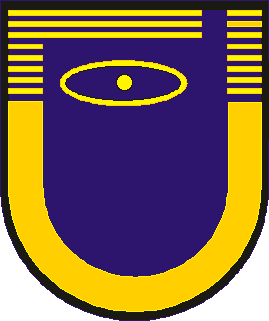 |
Institute of Physics
University of Latvia
IPUL-MHD Fifth Framework Project
| |
Workpackage No 1
Work package number and title:
1. Invitation of the leading experts in the field
of crystal growth to IPUL
Type of activity: Invited experts (V1)
Relative start month: 0
Timetable: first year – ½ month, second year – 1 month, third year
– ½ month; (altogether 2 months)
Objectives:
- University of Latvia has established a fruitful
collaboration with the group “Floating-Zone, Czochralski” at the Institute
for Crystal Growth (ICG) (Berlin, Germany). The group is very well technically
and experimentally equipped; its leader Dr. H. Riemann is an internationally
recognized high level specialist in experimental crystal growth. The group
performs excellent experiments in silicon crystal growth, especially by Floating
zone method and Si-Ge crystal growth by Czochralski method. The aim of the
present WP is to coordinate the mutual activities, to discuss the experimental
results obtained in ICG, to compare with results of numerical modeling obtained
at Latvia University and to prepare common publications on the research proposed
in the work plan of activity WP6. ICG plays an important role in German society
for crystal growth and crystallography (DGKK). Therefore, the collaboration
with ICG will stimulate contacts between the Institute of Physics in Latvia
and other research groups in Germany in order to broaden the scientific collaboration
and to find partners for participation in the EC networking programs in future.
- University of Latvia has a fruitful collaboration
with the group “Mathematical modeling of silicon single crystal industrial
growth” at the Institute for Electrothermal Processes (ETP) at University
of Hanover (Germany). The group has a leading position in world on the mentioned
field and has a high level of software and computing capacities. Its leader
Prof. A. Mühlbauer is an internationally recognized high level specialist
in using of electrothermal methods, especially in crystal growth. The group
performs excellent mathematical modeling work in large silicon crystal (up
to 300 mm) industrial growth by Floating zone method and by Czochralski method.
The aim of the present WP is to coordinate the mutual activities, to discuss
and compare the results of numerical modeling obtained in ETP and at Latvia
University and to prepare common publications on the research proposed in
the work plan of activity WP6 ETP has many excellent co-operations with German
industrial companies (e.g. Wacker Siltronic AG). Therefore, the collaboration
with ETP will stipulate contacts between the Institute of Physics in Latvia
and high-tech companies in Germany in order to broaden the applied scientific
research and to find industrial and academic partners for participation in
the EC networking programs in future.
- Development of new engineering turbulence models
needs experimental benchmark data. On the other hand, the benchmark experiments
need specific knowledge on particular models and their implementation in
applied simulation software (WP6): Aim of this package is to share expertise
and to coordinate research activities in testing and implementation of advanced
MHD turbulence models.
|
[Institute of Physics of University of Latvia, 2003]
|
|